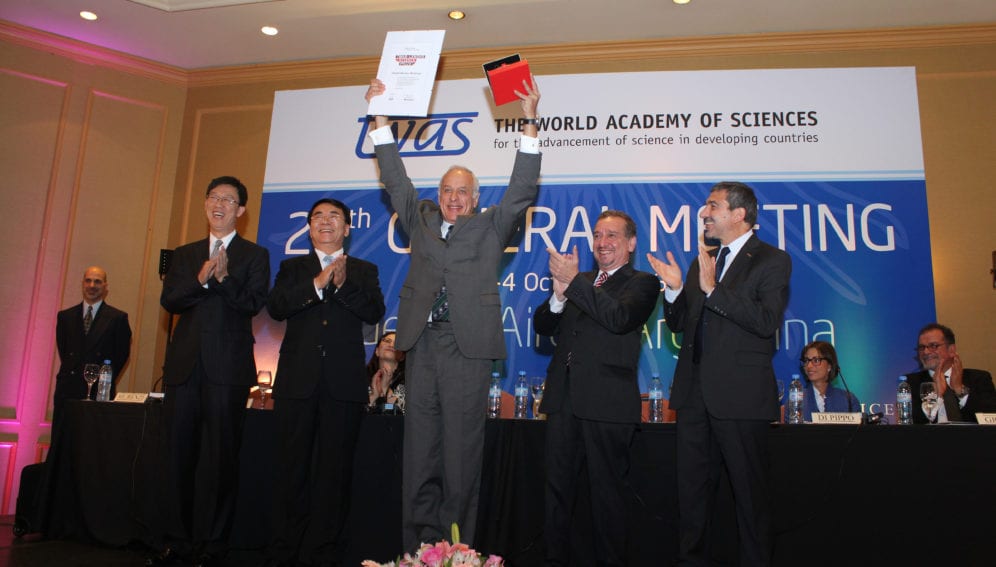By: Cecilia Rosen
Send to a friend
The details you provide on this page will not be used to send unsolicited email, and will not be sold to a 3rd party. See privacy policy.
[BUENOS AIRES] Although I would not believe a high-tech company is interested in rewarding results in the field of fundamental physics, this is exactly what happened last week, when Chilean scientist Claudio Bunster Weitzman was awarded the inaugural TWAS-Lenovo Science Prize (1 October).
The Chinese company has joined TWAS (The World Academy of Sciences) to recognise the physicist's research on gravity, specifically in regard to the understanding of black holes' nature and behaviour.
Lenovo's US$100,000 contribution to the prize, seeks to "give international recognition and visibility to individual scientists in the developing world for their outstanding scientific achievements", according to the company's chief technology officer George He.
"Being a global technology firm originated in a developing country, we understand how science and technology can be of great value and importance to a growing economy and we felt deeply the responsibility to help promote and support fundamental research in this context," he said at TWAS's 24th annual meeting in Argentina.
“Claudio Bunster Weitzman is a scientist who bravely stood for promoting scientific research in the developing world even during a time of oppression.”
TWAS
This is the first time the prize is awarded. It will award different research areas in the coming years, from physics and astronomy to biological sciences, mathematics and chemical sciences.
Romain Murenzi, executive director of TWAS, tells SciDev.Net that TWAS seeks to value both basic research and applied science.
Bunster, considered by some to be Chile's most important researcher in basic science got most of his scientific training at Princeton University, United States, where he spent around 15 years.
He is recognised not only for his contributions to basic science but also, according to TWAS press release, "as a scientist who bravely stood for promoting scientific research in the developing world even during a time of oppression".
During the Chilean dictatorship in the 1970s, Bunster was forbidden from teaching at universities and returned to his country in 1984 when he founded the Center for Scientific Studies, an independent research centre that now hosts 15 researchers.














